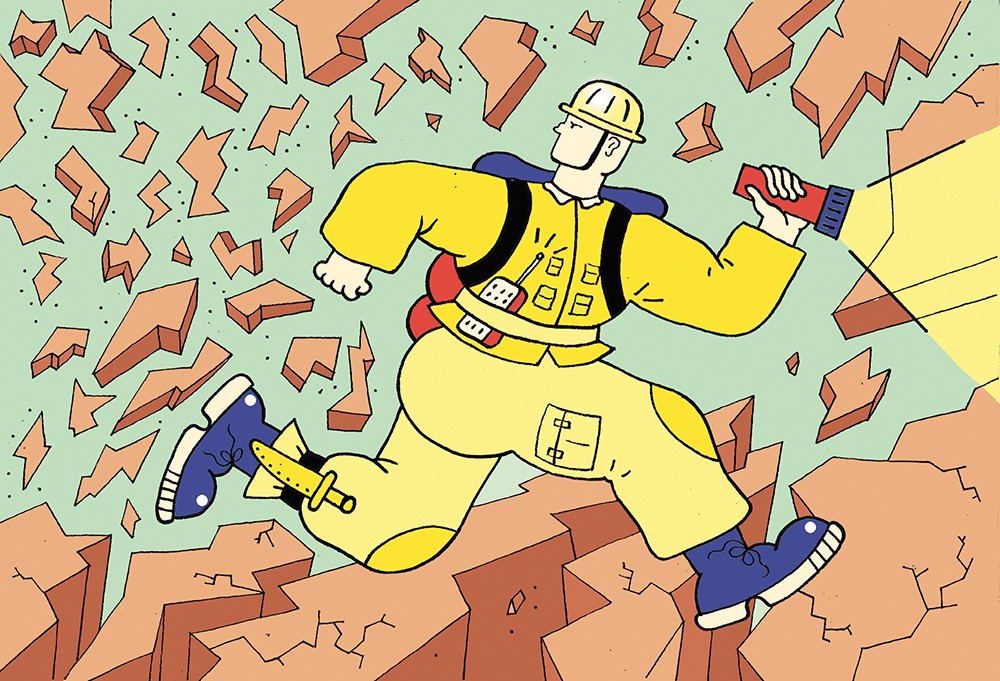Last week, an exceptionally well-written essay in the New Yorker titled "The Really Big One" renewed popular attention in the Cascadia Subduction Zone, a 700-mile coastal stretch from Vancouver, B.C., to northern California that is prone to infrequent, but potentially catastrophic, earthquakes. Geologists tell us there is a one-in-10 chance that such a "megathrust" quake could take place in the next 50 years. "The one thing I can say for sure," says Gerry Bozarth with Greater Spokane Emergency Management, "is that it would change all of our lives for the rest of our lives."
Here in the Inland Northwest, we have a double incentive to get serious about disaster preparedness. Not only do we have a responsibility to plan for our own health and safety during such a tragedy, we must become more ready to handle the influx of refugees that will follow if our sibling cities to the west are brought to their knees. With scientists uncovering this threat in just the past few decades and our region's relatively "disaster-resistant" past, our readiness as a population is unacceptably low. Fortunately, simple precautions we can take now could mean the difference between survival and a world of hurt.
With prolonged electric blackouts, water sanitation and delivery, as well as routine fire control, could be severely curtailed. Keeping potable water on reserve, along with water filtration equipment and chemicals, is a must. Imagine our telecommunications systems ceasing to function due to demand overload and possible damaged infrastructure. A battery-powered or hand-cranked radio is an essential survival tool and makes a great birthday or Christmas gift. You can also sign up for targeted alerts by registering your contact information at alertspokane.org. Basic preparedness does not have to break the bank: 25 pounds of rice is just $8 at Costco, and WinCo's bulk food department offers prepackaged survival kits that are convenient if you are unable to make your own.
The more dependents and physical, mental or material vulnerabilities you have, the more urgent it is for you to get prepared now. Discuss a series of concrete "if/then" scenarios with your family and friends, both locally and in other parts of the country. Know when you plan to stay in place, versus attempting to relocate to areas where hospitals will be less overwhelmed. As the major metropolitan staging area for the response to the worst potential disaster in our nation's history, I'd feel more comfortable if Spokane declared a municipal holiday every few years, where our entire city could undergo disaster response training and take part in preparedness efforts. Or at least invest more than we do now in popular education and outreach.
Many readiness activities have health, security and environmental benefits for our lives in advance of a catastrophe. You can turn over your survival food stash on your annual end-of-summer hiking trip, and have more than one reason to always make sure your bike is in good working order. When the big one hits, let's make sure we are all still culturally near enough to nature to survive it. ♦
Mariah McKay is a fourth-generation daughter of Spokane and a community organizer campaigning for racial, social and economic justice. She has worked in biotech and government and currently serves as a public health advocate.

















